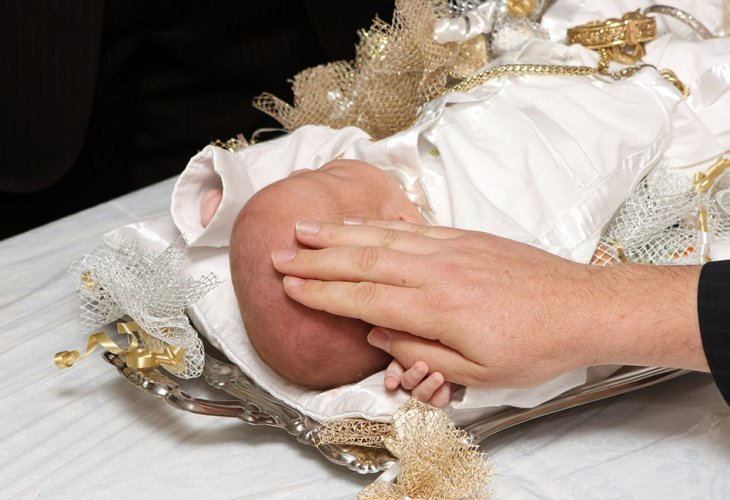Beginners Guide
Redemption of the Firstborn: What Is It, and Why?
Six facts about this unique commandment.
 (Photo: shutterstock)
(Photo: shutterstock)1. How did it all begin? Before the Exodus from Egypt, Hashem struck Egypt with ten plagues, the last of which was the plague of the firstborn. Every firstborn, both human and animal, perished in this plague, while the firstborns of Israel remained alive. Since the lives of the firstborns in Israel were given as a gift from Hashem, they were dedicated to holiness. Every firstborn animal was sacrificed on the altar in the Tabernacle and the Holy Temple, and every firstborn human was dedicated to serve throughout his life in the work of the Tabernacle and the Holy Temple. Thus says the Torah: "For all the firstborn are Mine; on the day that I sent forth all the firstborn in the land of Egypt, I sanctified all the firstborn in Israel, whether man or beast, for Myself; they shall be Mine: I am Hashem" (Numbers 3:13), and also "For all the firstborn among the children of Israel are Mine, both man and beast; on the day that I smote all the firstborn in the land of Egypt, I sanctified them for Myself" (Numbers 8:17).
2. Why didn't it happen? The holy roles were intended for the firstborns of Israel. However, after the Exodus from Egypt, the Israelites, including their firstborns, sinned with the golden calf, except for the tribe of Levi who did not sin. Due to this idolatrous worship, the firstborns were no longer worthy to serve in the holy service, and the tribe of Levi was chosen to replace them in this role for generations.
3. Why perform the redemption of the firstborn? The firstborns of Israel are no longer intended to serve, but because they were originally intended for this role, there remains in them a certain holiness associated with the priesthood. As is known, anything associated with the priesthood and Hashem's Tabernacle must belong exclusively to holiness and cannot be used for secular purposes. Therefore, it is necessary to remove this association with the priesthood from the firstborns so that they may live secular lives outside the walls of holiness. In order to achieve this, their worth is redeemed with money, which then takes on the holiness that was in them, and from that moment, the money belongs to the Temple.
Thus, by redeeming the firstborn with money, the holiness that was in the firstborn is transferred to the money, which from this moment is dedicated to Hashem's Tabernacle, and the firstborn can live their material and spiritual lives outside the walls of the Temple.
4. Does every firstborn need to undergo redemption of the firstborn? The firstborns who need to undergo redemption of the firstborn include: a male only, the firstborn to his mother (a man who divorced or was widowed and remarried, and had firstborns from two women will have two firstborns who require redemption), both parents are not from a family of priests or Levites, the son's birth was not caesarean, and if there were miscarriages before this birth, a halachic authority should be consulted.
5. When is this done? The redemption of the firstborn is performed on the 31st day after birth, as 30 full days must pass from the moment of the baby's birth, at which point he enters into the status of a person. A firstborn who needed to have redemption of the firstborn, and his parents were unaware and did not perform this commandment, can and must conduct this redemption for himself at any stage of his life.
6. How is it done? A. A God-fearing priest is invited to the ceremony. B. The firstborn is redeemed with five silver coins, which must collectively contain at least 117 grams of pure silver. The Bank of Israel issued five coins with a total weight of 130 grams, which are kosher according to halacha for the redemption of the firstborn (usually, there are priests who make sure to have these silver coins for this commandment. The father pays the priest in cash the value of the coins before the redemption so that they are his property during the performance of the commandment). C. There is a redemption of the firstborn text, in which the priest asks the father whether he prefers the money or his firstborn son, and the father answers that he wants his son. The priest declares he is willing to give the son in exchange for the money at which time the father pays the priest with the silver coins and receives his redeemed son from the priest.
Weekly Challenge
Check with your parents if they performed the redemption of the firstborn for you after your birth. If your parents did not, it is not too late. This important commandment can and must be fulfilled at any age, if it has not yet been done. Likewise, if you have a firstborn son for whom you should have performed the redemption of the firstborn and did not, now is the time.

